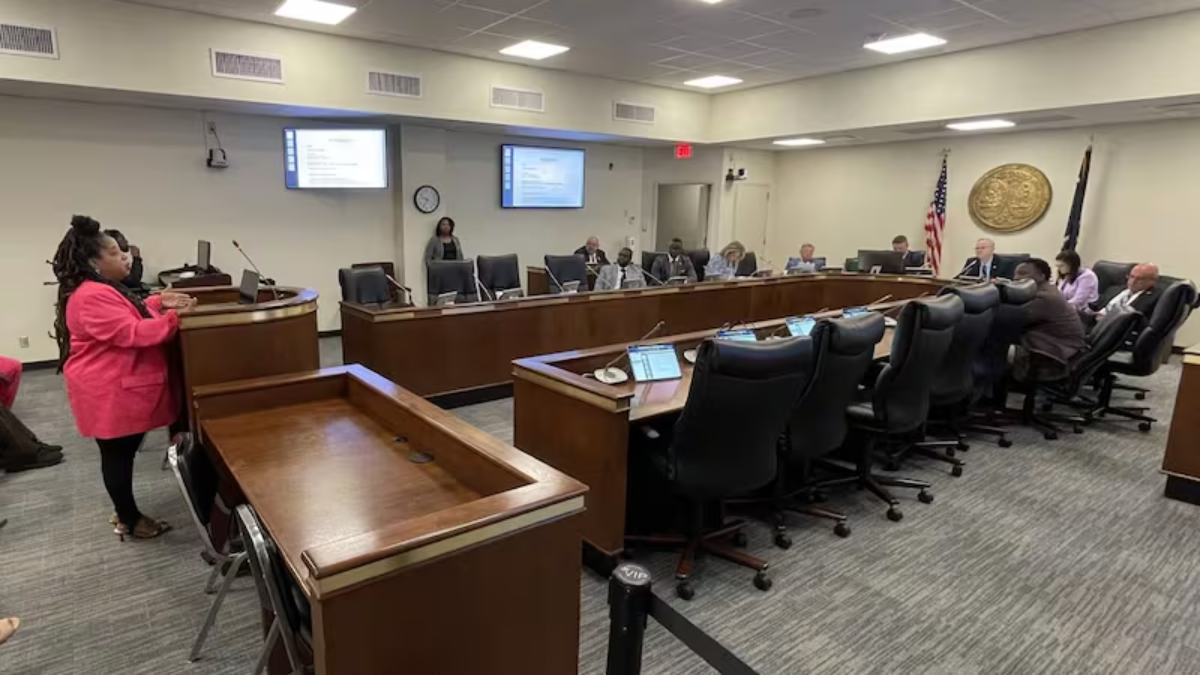In a significant step toward improving maternal health, a new bill introduced in South Carolina’s legislature seeks to require Medicaid and private insurance providers to cover doula services. The proposal aims to increase access to non-medical support during pregnancy and childbirth, which has been linked to better birth outcomes.
As the bill gains traction, it has sparked a larger conversation about maternal healthcare access and the importance of holistic support for mothers in South Carolina.
What Are Doulas and Why Are They Important?
Doulas are trained professionals who offer continuous emotional, physical, and informational support to women before, during, and after childbirth. Unlike midwives, doulas do not provide medical care but focus on helping expectant mothers navigate the birth process with personalized care.
Doulas assist with everything from creating birth plans to providing comfort measures during labor, and offering emotional support post-birth.
Numerous studies have shown that the presence of a doula during childbirth can lead to improved health outcomes for both mothers and infants. Some of the benefits include fewer C-sections, shorter labors, and a reduction in the use of pain medication.
Doulas also play a critical role in emotional support, which can significantly reduce the chances of postpartum depression and anxiety. Their holistic approach has made them invaluable assets in the birthing process.
The Proposed Bill in South Carolina
Introduced by state lawmakers, Bill 3108 would require Medicaid and private health insurance policies to cover the cost of doula services. This bill is part of South Carolina’s broader efforts to address maternal health disparities, which disproportionately affect low-income women and women of color.
The bill outlines specific guidelines for how doulas must be certified and trained to be eligible for reimbursement.
Doulas would need to obtain a National Provider Identification Number (NPI) and meet specific certification requirements, ensuring that they are equipped with the necessary knowledge and skills to assist expectant mothers effectively. The bill also establishes a registry of certified doulas within the state.
According to the bill, reimbursement for doula services would be available for all pregnant individuals under Medicaid, as well as for those covered under private insurance plans that offer maternal care.
The goal of the bill is to make doula support more accessible, particularly for low-income families who may otherwise struggle to afford these services out-of-pocket.
For more information on the bill and its progress, visit the South Carolina General Assembly website.

The Benefits of Expanding Doula Access
Proponents of the bill argue that expanding access to doula services could significantly improve maternal health outcomes in South Carolina. In particular, studies have shown that the presence of a doula during labor can reduce the need for pain medication and epidurals, as well as shorten the duration of labor.
By offering this support as part of insurance coverage, more women will be able to benefit from these outcomes.
South Carolina has one of the highest maternal mortality rates in the United States, with African American women particularly vulnerable. The introduction of doula services under Medicaid could help mitigate some of these disparities.
Doula care is seen as a cost-effective way to improve maternal and infant health, as it may lead to fewer complications during childbirth and reduced healthcare costs in the long run.
Advocates for the bill argue that it would help reduce disparities in maternal care by ensuring that all women, regardless of their income or insurance coverage, have access to the benefits of continuous labor support.
Additionally, by providing a more culturally competent approach to care, doulas may help improve patient satisfaction and engagement in their own health.
Previous Success in Other States
South Carolina is not the first state to consider expanding access to doula care. Other states, including North Carolina and Georgia, have successfully integrated doula services into their Medicaid programs, demonstrating positive results.
These states have seen improvements in maternal health outcomes and a reduction in the overall costs associated with childbirth.
For example, North Carolina’s Medicaid program covers doula services, and the state has reported a notable decrease in the rate of cesarean deliveries among Medicaid recipients. Similarly, Georgia introduced a pilot program to reimburse doulas under Medicaid, which was expanded due to its success.
Both states’ experiences have served as models for South Carolina’s proposed bill, with lawmakers looking to build on their successes.
Legislative Process and Support
The bill has received support from a variety of groups, including maternal health organizations, doulas, and advocacy groups working to reduce racial disparities in healthcare. However, it still faces significant hurdles in the legislative process. ‘
Bill 3108 recently passed through its first reading and is set to be reviewed by the House Labor, Commerce, and Industry subcommittee. The bill’s sponsors have expressed confidence that it will gain the necessary support to move forward.
As the bill advances, lawmakers will continue to gather input from healthcare professionals, doulas, and the public to refine its provisions. The hope is that it will pass through the legislature and become law by 2026, making South Carolina one of the few states to guarantee doula services under insurance coverage.
The Road Ahead
The introduction of Bill 3108 marks a significant step toward improving maternal health care in South Carolina. By requiring Medicaid and private insurance providers to cover doula services, the state is addressing a gap in the healthcare system and ensuring that all expectant mothers have access to the support they need during childbirth.
If the bill passes, it will not only provide tangible benefits for women and families in South Carolina but also set a precedent for other states to consider expanding access to doula services.
For now, supporters are watching closely as the legislative process unfolds, hopeful that this bill will pave the way for a more inclusive and supportive approach to maternal health care.
For more information on the legislative process and other healthcare-related updates, visit the South Carolina General Assembly’s website.
Disclaimer – Our team has carefully fact-checked this article to make sure it’s accurate and free from any misinformation. We’re dedicated to keeping our content honest and reliable for our readers.
